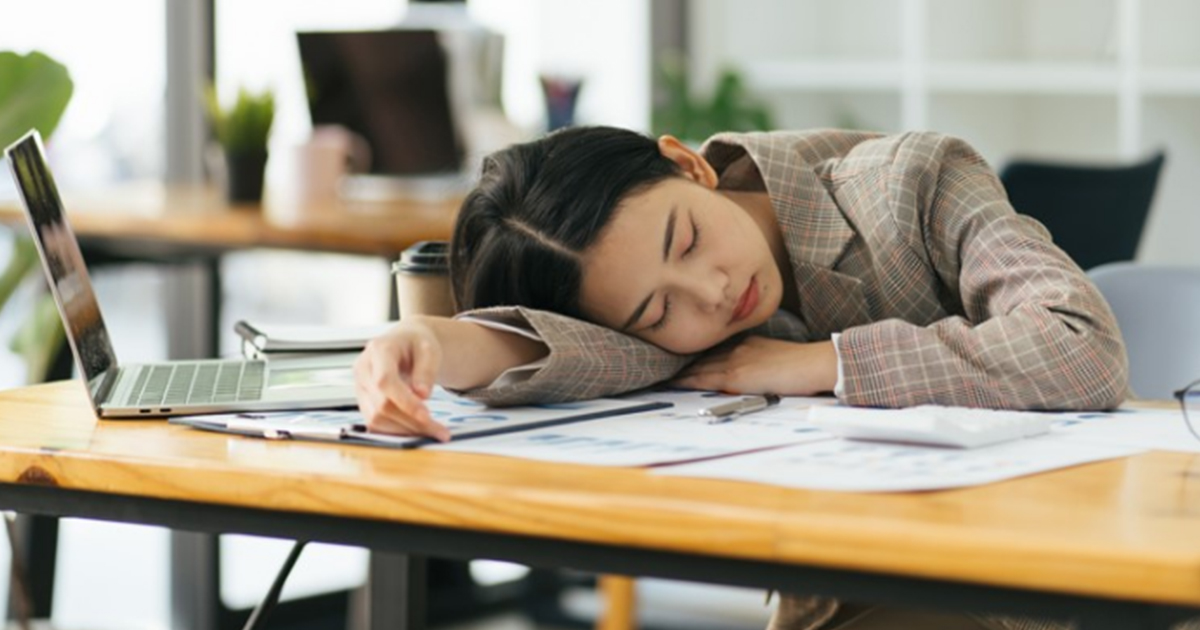A good night’s sleep is essential for overall well-being, yet many individuals grapple with sleep problems that can significantly impact their quality of life. Some individuals will try various techniques and methods to improve their sleep, but often these attempts fail. This leads many to ask the question, “When should you seek help for your sleep problems?”
Our sleep experts delve into the intricacies of common sleep problems, exploring when it is appropriate to seek professional help. Doctors of sleep medicine can offer valuable insights into the signs and symptoms that may indicate a need for intervention, as well as the various treatment options available for sleep problems.
Table of Contents
- Understanding Sleep Problems
- Recognizing Signs and Symptoms of Common Sleep Disorders
- What Are My Treatment Options for a Sleep Disorder?
- Where to Find a Doctor Specializing in Sleep Problems Near Jacksonville
Understanding Sleep Problems
Sleep problems are diverse and can manifest in various ways for different individuals. These symptoms range from difficulty falling asleep and staying asleep to disruptions in the sleep cycle. Common sleep disorders include insomnia, sleep apnea, restless legs syndrome, and narcolepsy.
While occasional sleep disturbances are normal, persistent issues that interfere with daily functioning may require attention. Sleep and physical health are uniquely intertwined, so if you have questions about your medical conditions and sleep problems, continue reading.
Can Underlying Medical Conditions Cause Sleep Problems?
If you have underlying medical conditions, such as the ones above, you may be wondering if they can be causing your sleep problems. Sleep and underlying medical conditions have an intrinsic link. This is to say, poor sleep can exacerbate underlying medical conditions, and underlying medical conditions can worsen sleep problems.
For example, bipolar and sleep problems have a psychological link such that a manic episode can lead one to not getting sleep, and thereby worsens the psychosis. Further, ADHD and sleep problems are linked in that treatment for ADHD requires the use of stimulant medications that can worsen insomnia. Finally, stress and sleep problems are certainly possible with stress decreasing one’s ability to get a restful night’s sleep.
Does Low Testosterone Cause Sleep Problems?
Yes, low testosterone levels can contribute to sleep problems in men. Testosterone, a hormone primarily produced in the male genitalia, plays various roles in the body, including regulating sleep patterns. When testosterone levels are low, it can lead to disruptions in sleep architecture and contribute to sleep problems such as Insomnia, Sleep fragmentation, and Decreased sleep quality.
Additionally, low testosterone levels can also contribute to other symptoms that indirectly affect sleep, such as fatigue, mood disturbances, and decreased libido. If you suspect you have low testosterone and are experiencing sleep problems, it’s essential to consult with a healthcare professional for proper evaluation and treatment. Hormone replacement therapy or other treatments for low testosterone may help improve sleep quality and alleviate associated symptoms.
Can Hypothyroidism Cause Sleep Problems?
Hypothyroidism can indeed cause sleep problems. The thyroid gland plays a crucial role in regulating metabolism and energy levels in the body, including the regulation of sleep-wake cycles. When the thyroid gland is underactive, as is the case in hypothyroidism, it can lead to various symptoms, including fatigue, lethargy, and difficulty sleeping.
Common sleep problems (or sleep disorders) caused by Hypothyroidism include: Insomnia, Daytime sleepiness, Sleep apnea, and Restless legs syndrome (RLS)
Recognizing Signs and Symptoms of Common Sleep Disorders
Knowing when to seek professional sleep help begins with recognizing the signs and symptoms of a sleep disorders. Persistent fatigue, difficulty concentrating, mood swings, and irritability are common indicators that something may be amiss with your sleep.
Other signs of sleep problems include loud snoring, pauses in breathing during sleep, and restless leg movements. If you find yourself consistently struggling to maintain a regular sleep pattern or if your sleep quality has noticeably declined, it might be time to consult a sleep expert.

What Are Some of the Most Common Sleep Problems
Many different types of sleep disorders cause sleep problems for countless adults. While we cannot list every type of sleep disorder that exists, we have listed some of the more common sleep issues below:
Chronic Insomnia
If you regularly have difficulty falling asleep or staying asleep, and these issues persist for more than a few weeks, it is advisable to consult a sleep specialist. Insomnia can have various underlying causes, including stress, anxiety, or medical conditions that need proper diagnosis and treatment.
Excessive Daytime Sleepiness
Unexplained daytime sleepiness or sudden bouts of drowsiness can be indicative of sleep disorders like sleep apnea or narcolepsy. If you find yourself struggling to stay awake during the day despite getting what seems to be adequate sleep at night, seeking professional advice is crucial.
Loud Snoring and Breathing Pauses
Loud and persistent snoring, especially when accompanied by pauses in breathing, may be a sign of sleep apnea. Sleep apnea can have serious health implications, including an increased risk of cardiovascular problems. Consulting a sleep specialist can help diagnose and manage this condition effectively.
Restless Legs Syndrome (RLS)
If you experience discomfort or an irresistible urge to move your legs while at rest, particularly during the evening or nighttime, it may be indicative of restless legs syndrome. RLS can significantly disrupt sleep, and seeking help from a sleep expert can lead to appropriate management strategies.
Shift Work Sleep Disorder
Individuals working non-traditional hours may struggle with maintaining a regular sleep-wake cycle. If your work schedule significantly impacts your ability to sleep, a sleep expert can offer guidance on managing shift work sleep disorder and optimizing your sleep patterns.
What Are My Treatment Options for a Sleep Disorder?
Once you have identified the need for professional help, it is essential to understand the various treatment options available. Doctors specializing in sleep problems employ a multidisciplinary approach to address sleep problems, tailoring interventions based on the specific diagnosis. Here are some common treatment modalities recommended by sleep experts:
Cognitive Behavioral Therapy for Insomnia (CBT-I)
Cognitive Behavioral Therapy for Insomnia is a structured program that addresses the thoughts, beliefs, and behaviors contributing to insomnia. It aims to improve sleep quality by modifying negative sleep-related patterns and promoting healthy sleep hygiene practices.
Continuous Positive Airway Pressure (CPAP) Therapy
CPAP therapy is a common treatment for sleep apnea. It involves using a machine that delivers a constant stream of air to keep the airways open during sleep. This prevents breathing pauses and improves oxygen levels, promoting better sleep quality.
Medications for Sleep Problems
Sleep specialists may prescribe medications to address specific sleep disorders. These can include sedatives or hypnotics for insomnia, medications to manage restless legs syndrome, or medications to regulate sleep-wake cycles in conditions like narcolepsy.
Using Lifestyle and Behavioral Interventions for Sleep Disorders
Making lifestyle changes can significantly impact sleep quality. Sleep experts often recommend maintaining a consistent sleep schedule, creating a comfortable sleep environment, limiting caffeine and alcohol intake, and incorporating regular physical activity into one’s routine.
Handling a Sleep Issue with Light Therapy:
If you suffer from a moderate sleep issue then one solution might be light therapy. Light therapy is commonly used to regulate circadian rhythms and treat conditions like seasonal affective disorder (SAD) or shift work sleep disorder. Exposure to bright light, especially in the morning, can help reset the body’s internal clock.
Dental Devices for Sleep Problems:
For certain sleep disorders, such as mild to moderate sleep apnea, dental devices may be recommended. These devices reposition the jaw and tongue to keep the airway open during sleep.
Where to Find a Doctor Specializing in Sleep Problems Near Jacksonville
If you need a doctor specializing in sleep problems near Jacksonville then you have come to the right place. At the Jacksonville Sleep Center, we are dedicated to offering crucial support for individuals grappling with sleep disorders. Our center employs cutting-edge technology and a team of experienced sleep specialists to conduct thorough sleep studies, including polysomnography and home sleep apnea testing.
By prioritizing accuracy in diagnosis, we can identify various sleep disorders such as sleep apnea, insomnia, or restless legs syndrome. Working closely with our patients, we craft personalized treatment plans that may include cognitive-behavioral therapy for insomnia or continuous positive airway pressure (CPAP) therapy for sleep apnea.
Our commitment is to address the root causes of sleep disturbances and enhance overall well-being. We take pride in providing a comprehensive approach to occupational medicine, ensuring that individuals receive the tailored care and guidance necessary for a restful night’s sleep.






